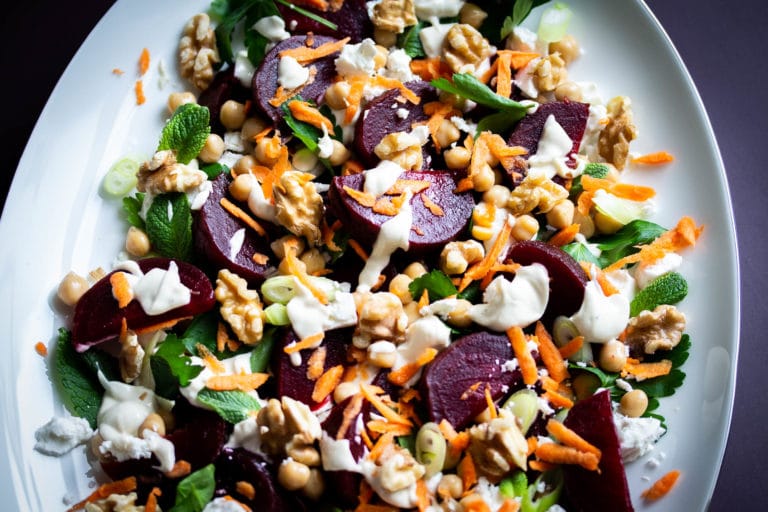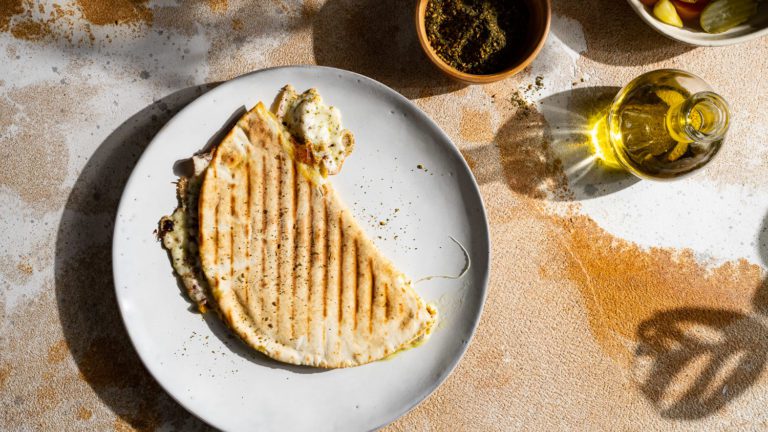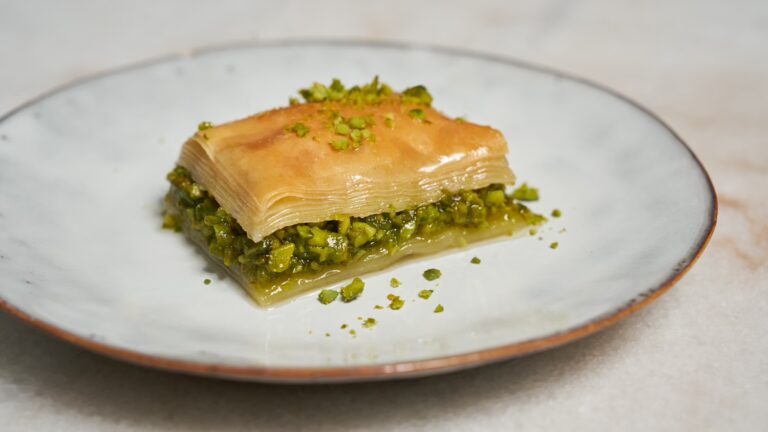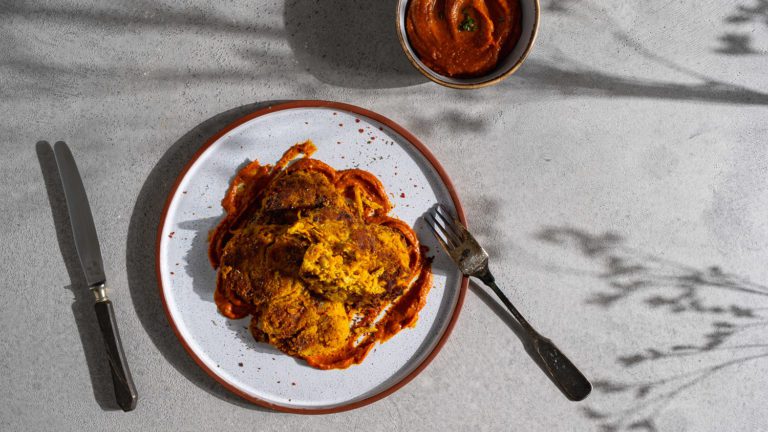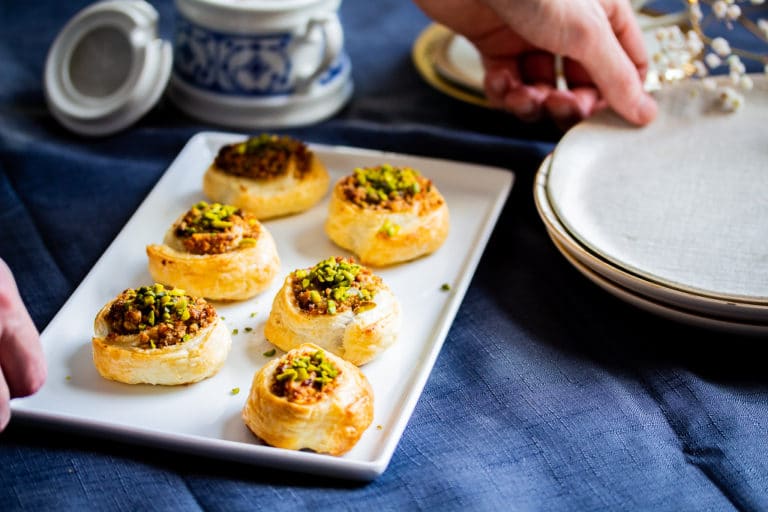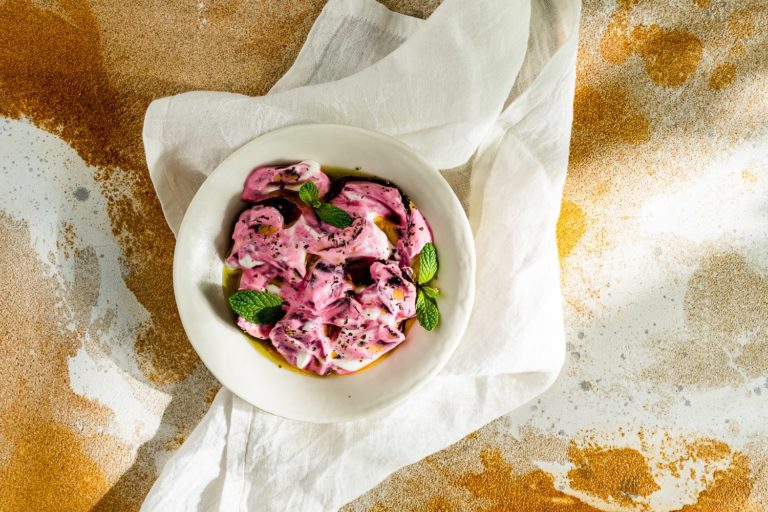Making your own filo pastry – the basic recipe
Making your own filo pastry is not as difficult as you think. All you need is a little time to roll out the dough thinly. You can then use the homemade filo pastry straight away – whether you fill it with sweet or savory fillings or toppings is up to you.
What is filo pastry?
Filo pastry is a wafer-thin dough that is brushed with butter and layered when preparing a dish. The vegan dough is very popular in the Levant. But not only in the Levant, but also in other Middle Eastern countries and parts of the Balkans. Whether baklava, börek or rekak, filo pastry is used for some classic dishes.
It is unclear exactly which country the filo pastry (or phyllo pastry) comes from. Many countries claim the original recipe for themselves and there is no clear literature on the subject. As with so many dishes in the Levant, each region adds its own secret ingredient or creates its own variation.
A handful of ingredients for homemade filo pastry
To make simple filo pastry yourself, you only need a few ingredients, a clean work surface, a rolling pin and some baking paper. These are basically the basics that everyone has at home if you bake from time to time.
Have a look in your kitchen cupboard to see if you already have the following ingredients for making your own filo pastry at home:
- Flour: type 550 wheat flour is particularly suitable for elastic doughs. Alternatively, you can also use 00 flour (pizza flour).
- Cornflour: is essential here to prevent the layers of dough from sticking together.
- Vegetable oil: I used neutral rapeseed oil. But you can also use a good olive oil.
- White wine vinegar: is added to the dough so that it becomes crispy when baked.
- Salt: a good pinch enhances the taste of the dough.
So, have you got everything you need or do you still have to go shopping? If you still need to buy something, then go ahead, because we’ll continue with a short tutorial on how to make your own filo pastry.
Make your own filo pastry in 5 simple steps
I often just buy the ready-made dough in the supermarket, but it is one of the basic recipes of Levantine cuisine. For this reason, I had to make my own filo pastry at some point. And I was surprised how simple the recipe is and that everything worked out so well.
I was wary of the thin layers of dough and wasn’t sure whether they would stick together when I finally rolled them out. But thanks to the cornflour, this didn’t happen and I was able to separate each individual layer from the other easily.
So don’t be afraid, just give it a try. With this recipe for making filo pastry yourself, you will definitely succeed, as the work actually only consists of 5 rough steps:
- Stir the dough together and knead.
- Shape the dough balls.
- Roll out the dough balls one by one.
- Layer the rolled-out dough and roll out larger.
- Roll the filo pastry into paper or use directly.
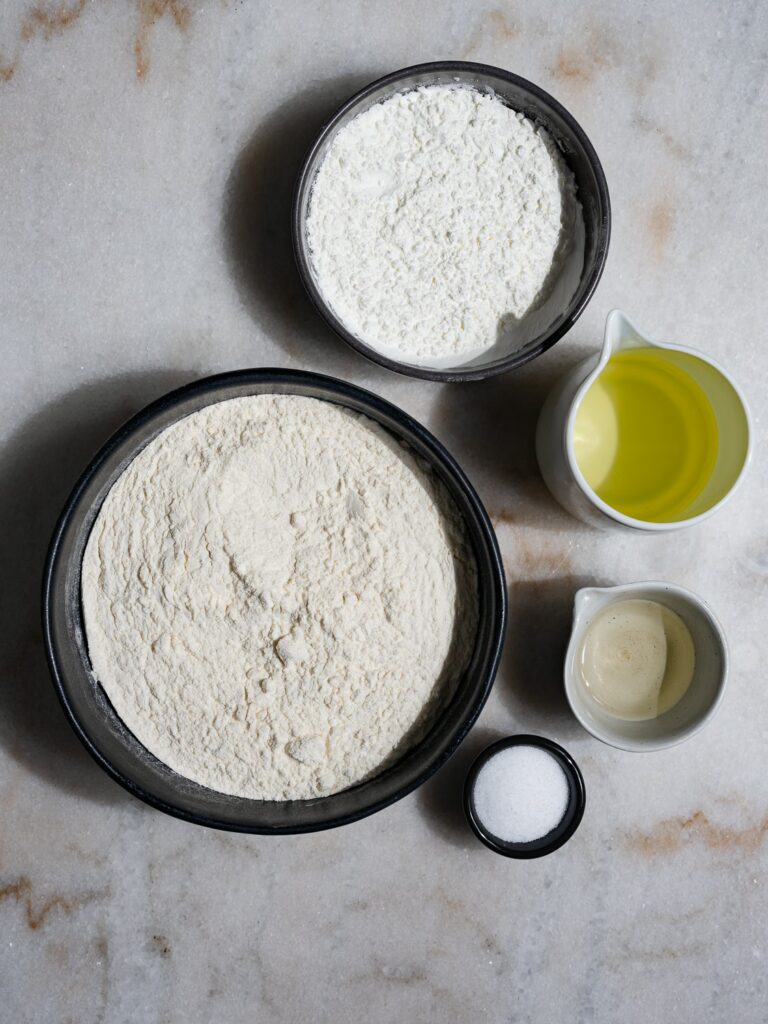


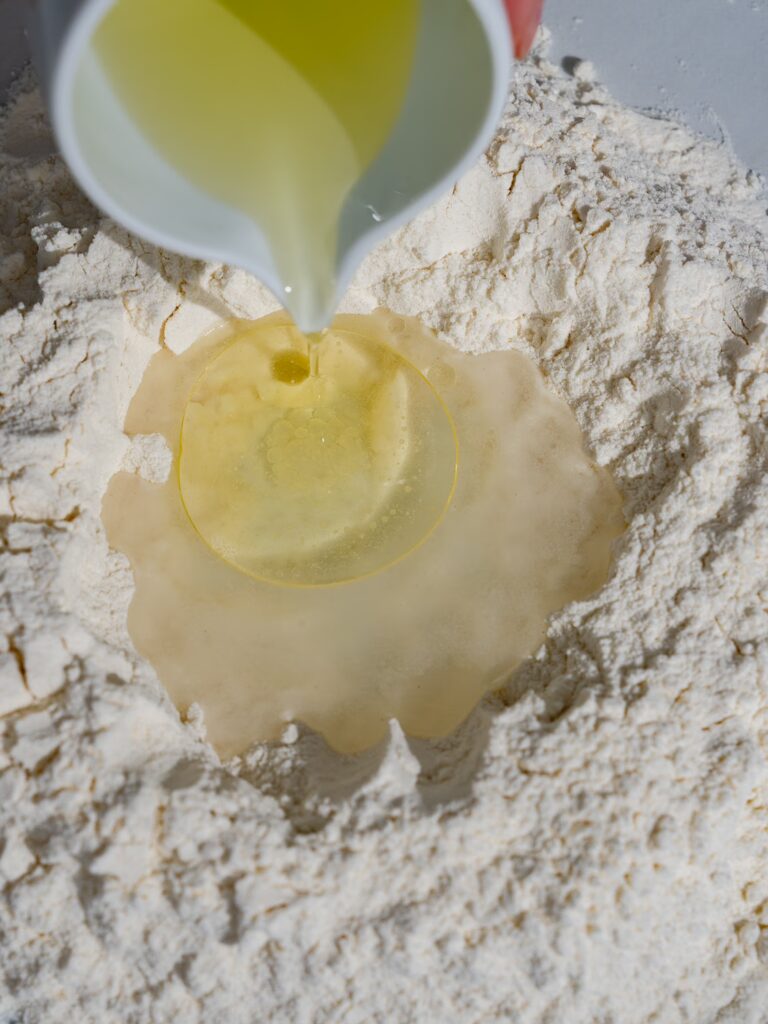







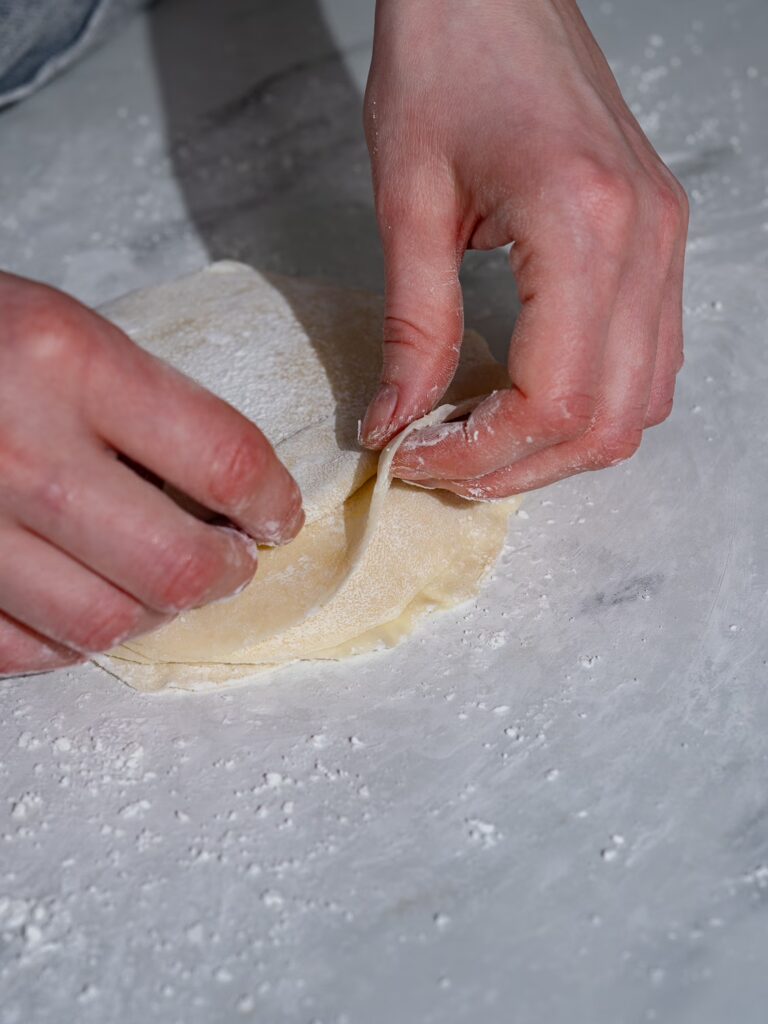

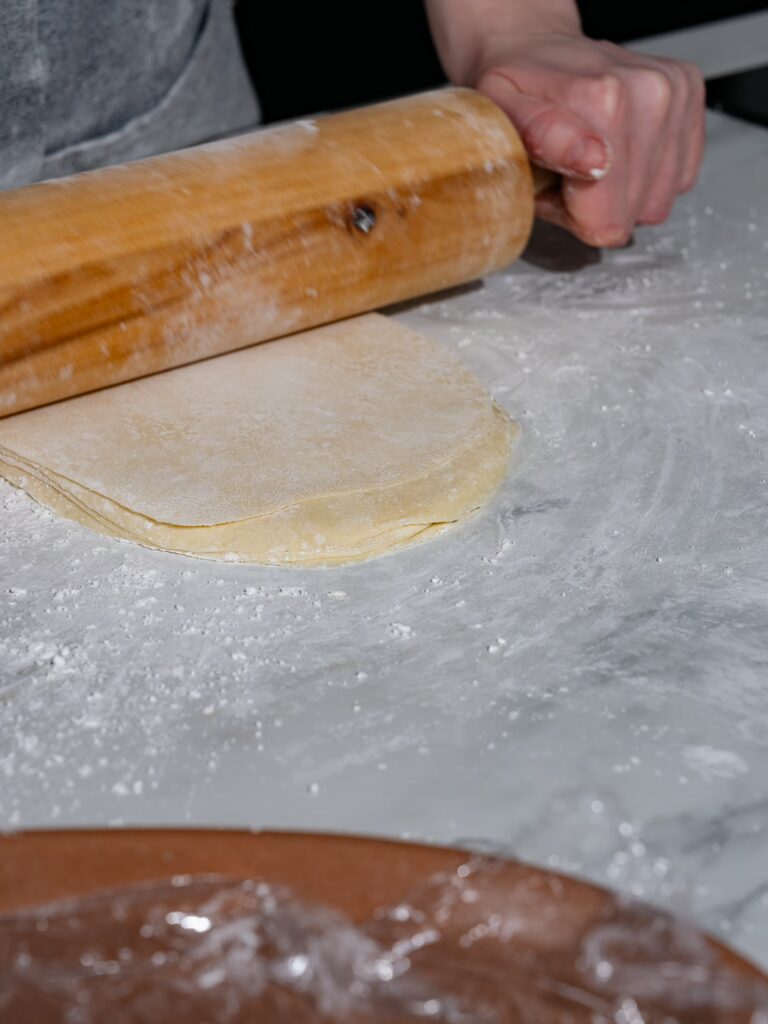
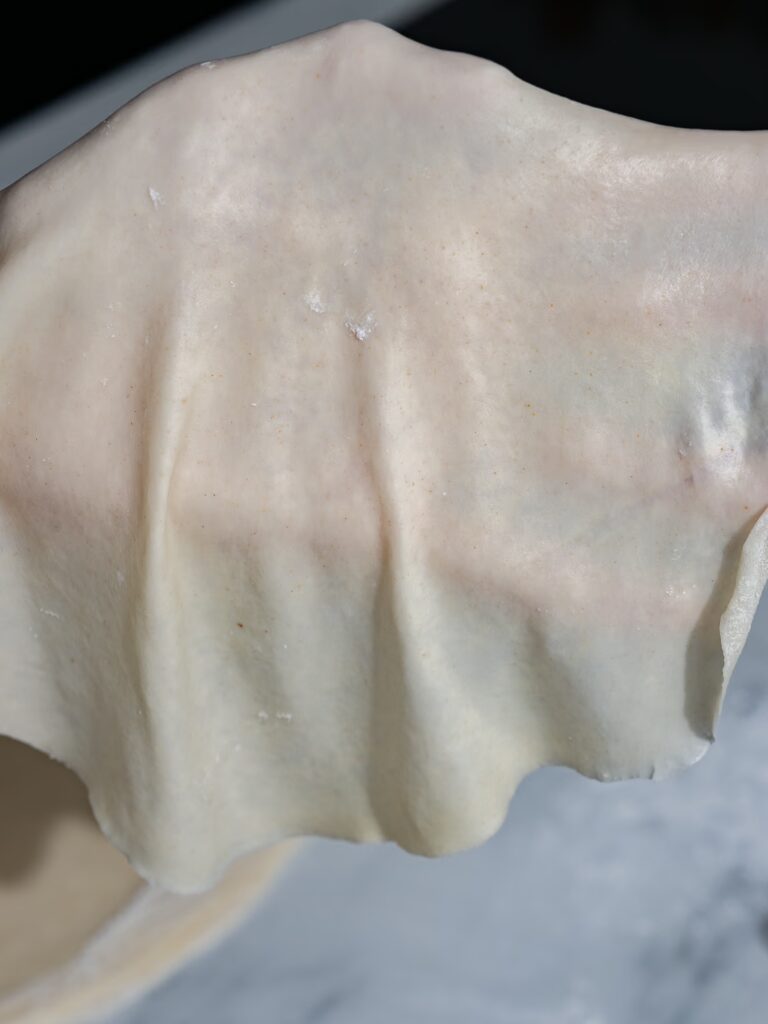
My tip: Filo dough is very sensitive. Carefully pull the layers of dough apart and cover the rest of the dough with foil or a damp kitchen towel to prevent it from drying out.
If you have succeeded in making the filo pastry yourself, please leave me a review and the recipe. Do you have any questions or tips? Feel free to write it in the comments column – have fun preparing it.
Recipe for making your own filo pastry
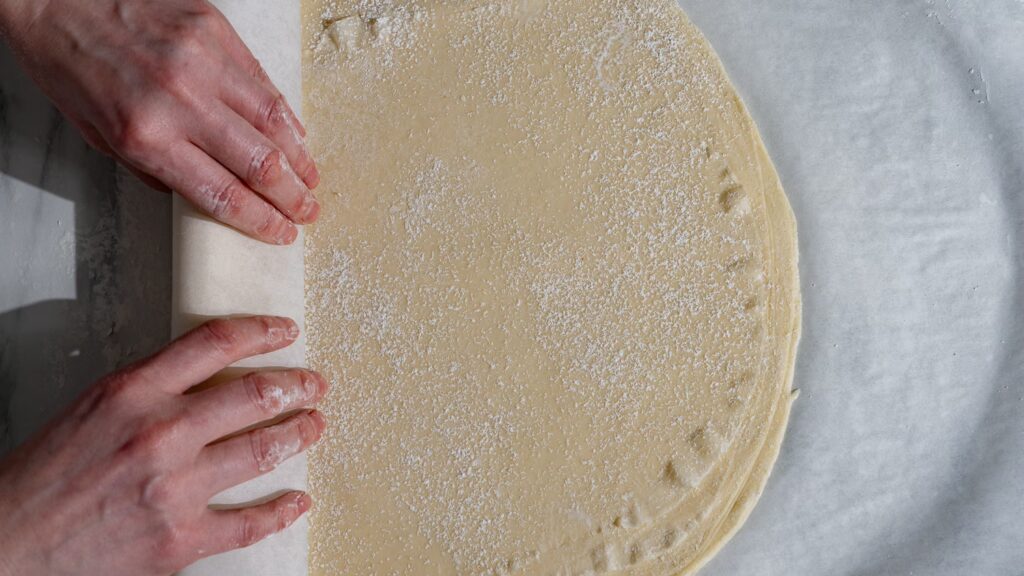
Ingredients
- 350 g All-purpose flour
- 170 ml lukewarm water
- 50 ml Vegetable oil (neutral)
- 1 Teaspoon Salt
- 2 Tablespoon White wine vinegar
- 50 g Cornflour (for sprinkling)
Zubereitung
- Mix together the flour, water, oil, vinegar and salt.
- Knead the dough well for approx. 5 minutes at medium speed with a food processor or approx. 7-10 minutes with your hands until the dough has become smooth and elastic. If you press lightly on the dough, it should spring back.
- Cut the dough into 20 equal pieces (approx. 28 g). Shape the dough into balls, cover and leave to rest for 60 minutes.
- Now roll out thinly, ball by ball, approx. 15 x 15 cm. Turn and rotate the dough.
- Sprinkle the rolled-out dough with cornflour and place layer upon layer.
- Now roll out the stacked layers of dough again with the rolling pin to approx. 30 x 30 cm. Turn and flip the layers of dough so that they are nice and thin. The layers of dough are perfect when you can see your hands through the dough.
- Use the filo pastry straight away or roll up in baking paper and store in the fridge.
Notes
Nährwerte
How do you prepare filo pastry?
As soon as you have finished rolling out the homemade filo pastry, you can use it straight away. The best way to do this is to take several sheets of filo pastry, brush them piece by piece with butter or ghee and place them on top of each other. This creates the crispy and thin layers. The many layers also make the dish more stable, as with baklava cheesecake, for example.
Recipes with filo pastry
The thin dough is versatile. You could also call it the puff pastry of the Levant. Because you can make it sweet and savory. Sweet variations include the Lebanese pudding rolls Snud il Sit or the baklava pockets with cream filling Shabiyat.
Would you prefer to prepare a savory dish with your homemade filo pastry? Then try the feta parcels with thyme & caramelized persimmon or the Syrian filo pastry pockets.
What is the shelf life of filo pastry?
Filo pastry dries out quickly, so I recommend that you process it as soon as possible. You can also store it in the fridge for 1 – 2 days if you have sprinkled the layers of dough with cornflour and wrapped them in paper and then in foil.
Can the thin dough also be frozen?
So that you always have a few layers ready, you can make the filo pastry yourself and then freeze it. Follow the recipe and wrap the dough in a freezer bag or put it in a tin. It will keep there for approx. 6 months. After slow defrosting in the fridge, it should be used immediately.
You can also follow me on Instagram for even more inspiration about Levante cuisine.


